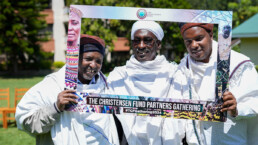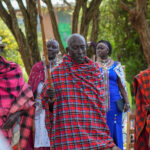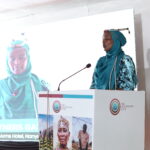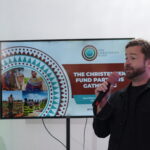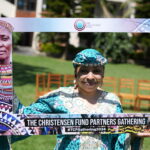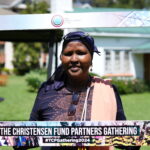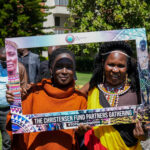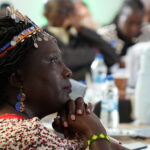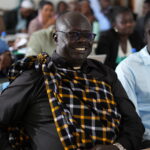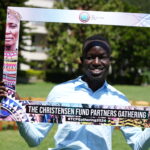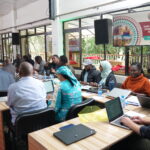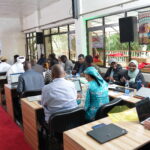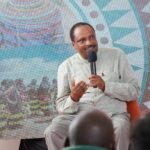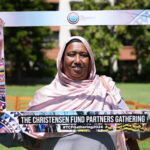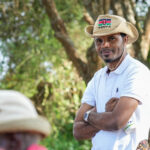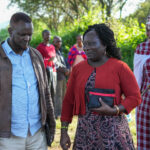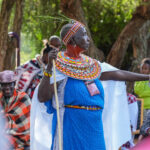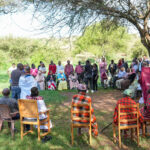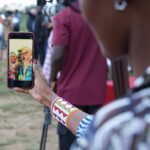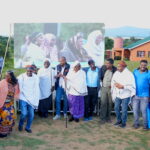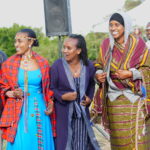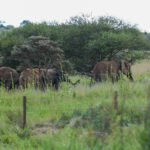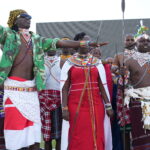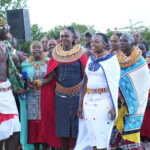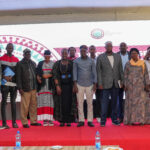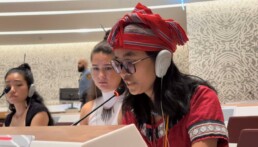The Christensen Fund Partners Gathering in Kenya
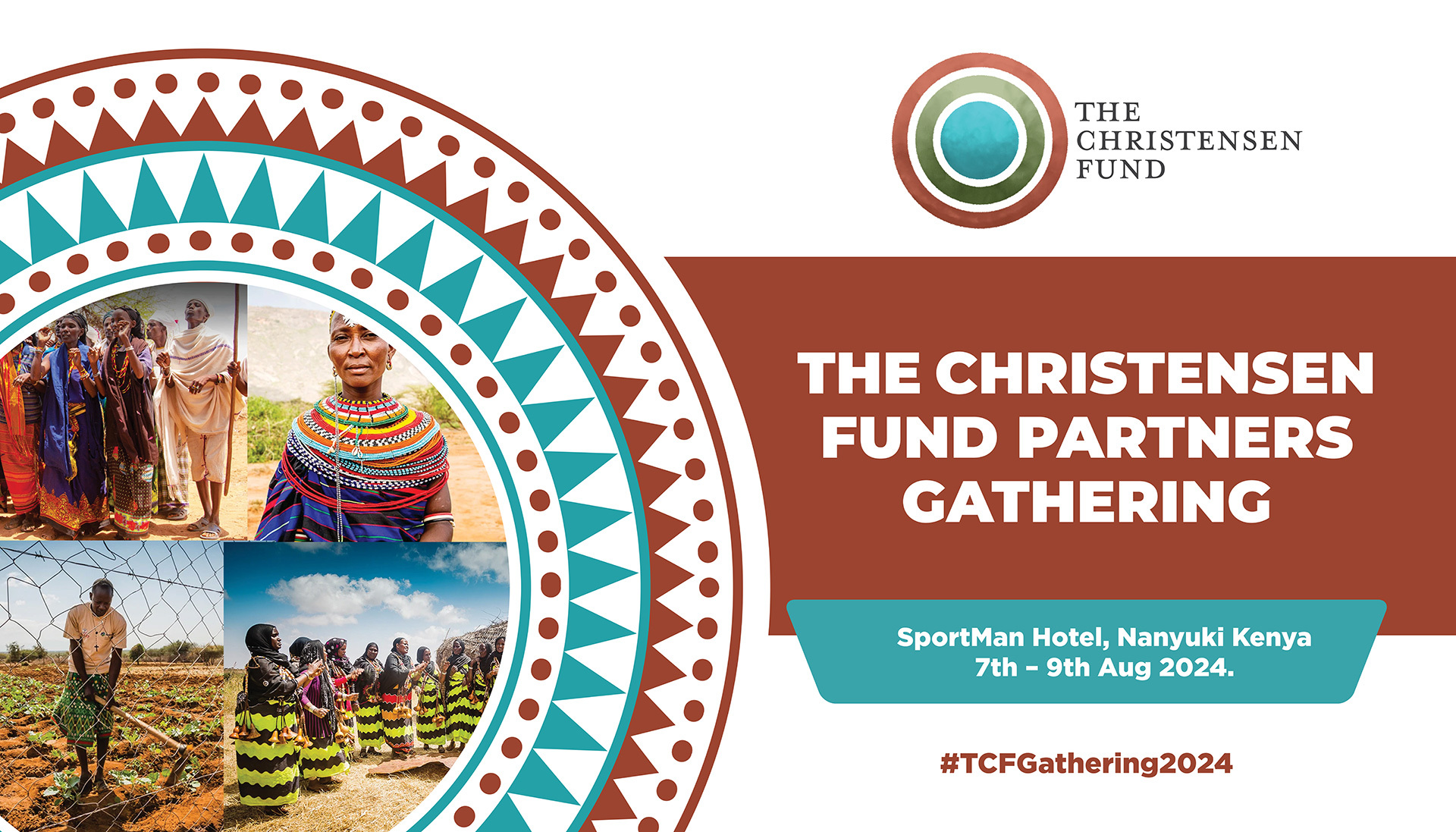
This month, the Christensen Fund organized a convening in Nanyuki, Kenya, bringing together thirty-two partner organizations from Kenya, Uganda, Tanzania, Cameroon, and Ethiopia. Self-determination, the right of Indigenous Peoples to freely determine their political status and pursue their economic, social, and cultural development, formed the central theme of the gathering. We recognize self-determination as a core right of Indigenous Peoples to maintain their traditional ways of life, protect their lands and resources, and participate fully in decisions affecting their futures.
The gathering focused on several critical themes intrinsically linked to self-determination: land rights and pastoral issues, wildlife conservation, carbon trading, green energy transition, and climate change. Partners explored these topics through the lens of how they impact Indigenous Peoples’ ability to exercise self-determination, highlighting both challenges and opportunities. Partners shared strategies, successes, and ongoing challenges in their efforts to empower Indigenous communities to control their own destinies.
Our gathering coincided with the International Day of the World’s Indigenous Peoples, allowing us to celebrate together in person at IMPACT Kenya, and further emphasized the global significance of Indigenous self-determination and the need for continued support and advocacy.
We understand that the right to self-determination requires ongoing support, resources, and collaboration. Our gathering sought to support the collective capacity of our incredible partners who work every day to advance Indigenous self-determination across Africa. We are humbled to see the ripple effect of empowerment across Indigenous communities in Africa, furthering the cause of self-determination and sustainable outcomes in our interconnected world.
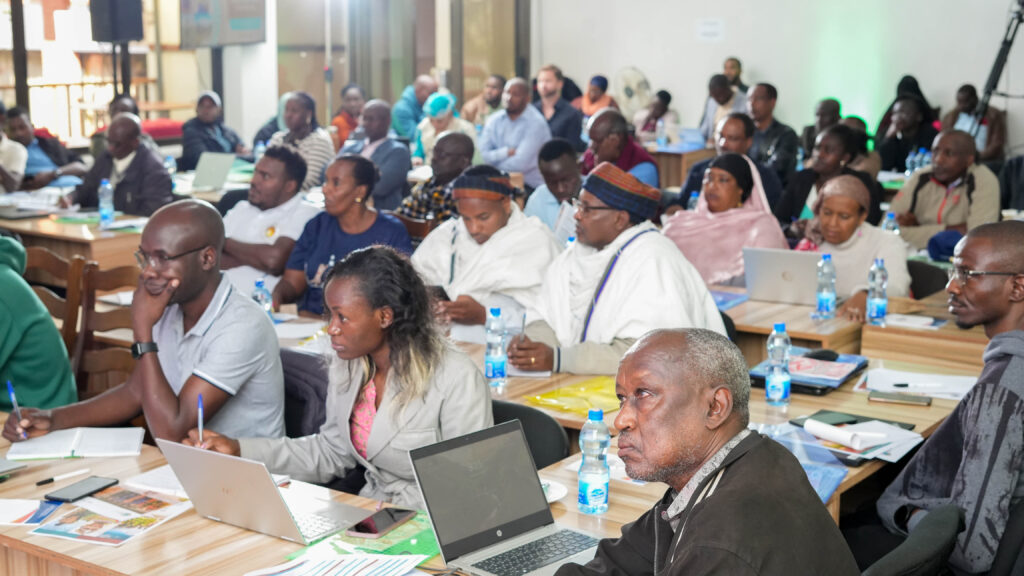
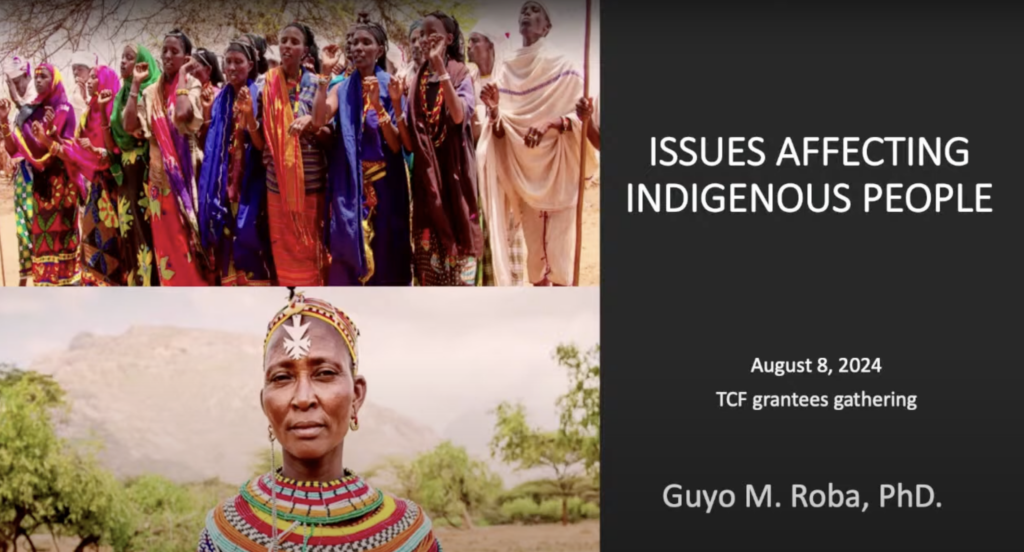
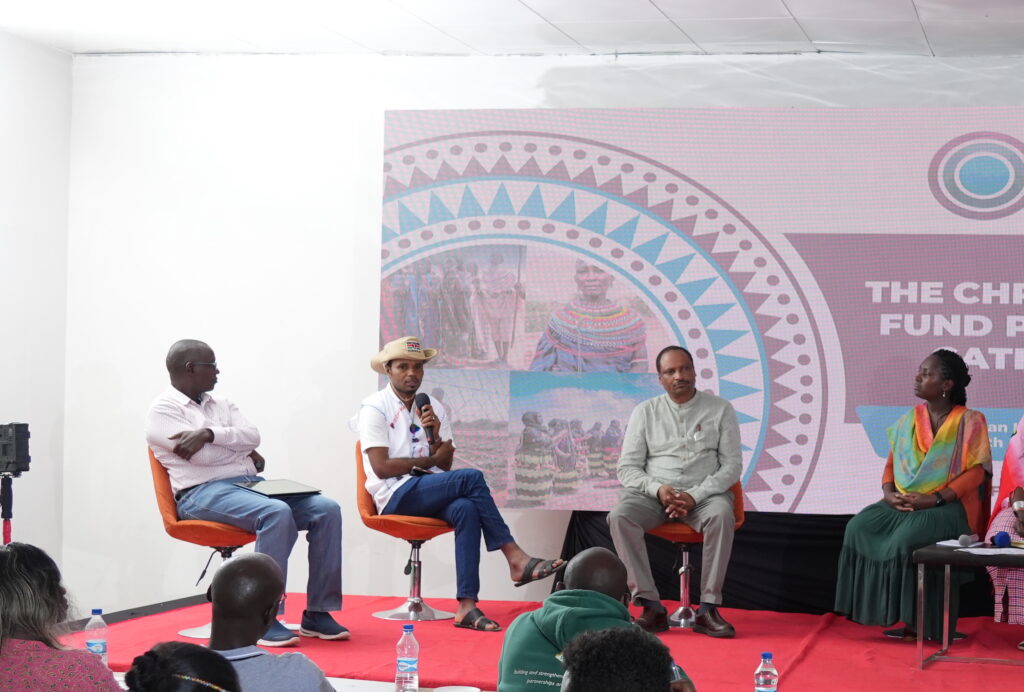 Above: Basiru Isu, Secretary General of the Network of Indigenous and Local Communities, Sustainable Management of Forest Ecosystems in Central Africa (REPALEAC) and Indigenous Leader with The Christensen Fund; Hussein Tadicha, Executive Director, Centre for Research and Development in Drylands (CRDD); Daniel Kobei, Founder and Executive Director, Ogiek Peoples’ Development Program (OPDP); Eileen Wakesho– Director, Community Land Protection, Namati.
Above: Basiru Isu, Secretary General of the Network of Indigenous and Local Communities, Sustainable Management of Forest Ecosystems in Central Africa (REPALEAC) and Indigenous Leader with The Christensen Fund; Hussein Tadicha, Executive Director, Centre for Research and Development in Drylands (CRDD); Daniel Kobei, Founder and Executive Director, Ogiek Peoples’ Development Program (OPDP); Eileen Wakesho– Director, Community Land Protection, Namati.
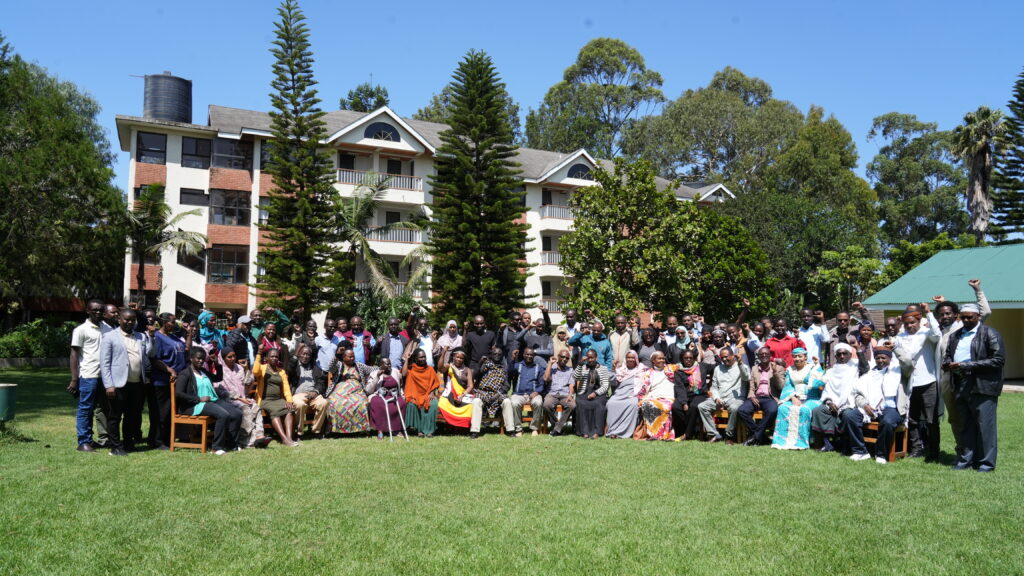
We are honored by the presence of our amazing partners. As Hassan Roba reflected, “Beyond addressing major obstacles affecting Indigenous Peoples’ self determination in Africa, the gathering has helped our partners to realize the power and opportunities of building solidarity towards a just cause. What remains are actions that would lead toward achieving these goals.”
The 17th Session of the Expert Mechanism on the Rights of Indigenous Peoples
The Expert Mechanism on the Rights of Indigenous Peoples (EMRIP) provides expert advice and studies to the United Nations Human Rights Council to ensure the rights of Indigenous Peoples are respected on a global scale. EMRIP was established by the Human Rights Council in 2007. EMRIP meets annually in furtherance of its role to conduct studies to advance the promotion and protection of Indigenous Peoples’ rights by clarifying the implications of key principles, such as self-determination and free, prior and informed consent; examine good practices and challenges in a broad array of areas pertaining to Indigenous Peoples’ rights; and suggest measures that States and others can adopt at the level of laws, policies and programmes.
Our Partners at EMRIP
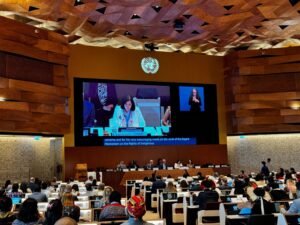
At this year's session, the Asia Indigenous Peoples Pact (AIPP) and the International Work Group for Indigenous Affairs (IWGIA) organized a panel discussion. The panel aimed to highlight the current status of implementing the Declaration of the Rights of Indigenous Peoples in Asia and emphasize its significance, given that Asia is home to more Indigenous Peoples than all other regions of the world combined.
Indigenous Peoples Rights International (IPRI) organized multiple side events and panel discussions during the session. These included a dialogue on the rights of Indigenous Peoples in post-conflict situations and their involvement in peace negotiations, agreements, and accords.
Read the statement presented by Rachana Sam on behalf of the Asia Indigenous Peoples Caucus.
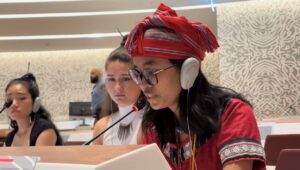
UN Special Rapporteur on the Rights of Indigenous Peoples
The UN Special Rapporteur on the Rights of Indigenous Peoples and the (EMRIP) work together to promote and protect Indigenous Peoples' rights globally. While the Special Rapporteur focuses on country-specific situations and thematic studies, EMRIP provides expertise and advice to the UN Human Rights Council on Indigenous issues. Both mechanisms often coordinate their efforts to address pressing concerns affecting Indigenous communities worldwide.
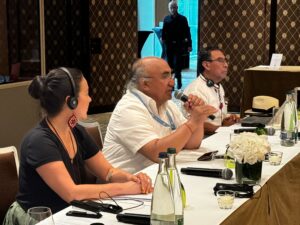
Francisco Calí Tzay, the current UN Special Rapporteur on the Rights of Indigenous Peoples, has called for a moratorium on all carbon trading until the markets can guarantee that all actors will respect the rights of Indigenous Peoples. This statement exemplifies the kind of advocacy work undertaken by the Special Rapporteur in collaboration with EMRIP. For more comprehensive information on the UN Special Rapporteur's work and recent developments, please refer to the latest issue of The Indigenous World, published by the IWGIA.
The International Indian Treaty Council (IITC) held consultations on a set of principles being developed by the United Nations Environment Programme (UNEP), designed to guide private conservation actors to uphold human rights within conservation funding activities. IITC's work to gather feedback from Indigenous Peoples worldwide is a crucial effort to ensure the rights of Indigenous Peoples are respected in the creation of global conservation standards.
At the 17th Session of EMRIP and always, we commend our partners and their allies for the tireless and important work they do every day to advance the rights of Indigenous Peoples.


